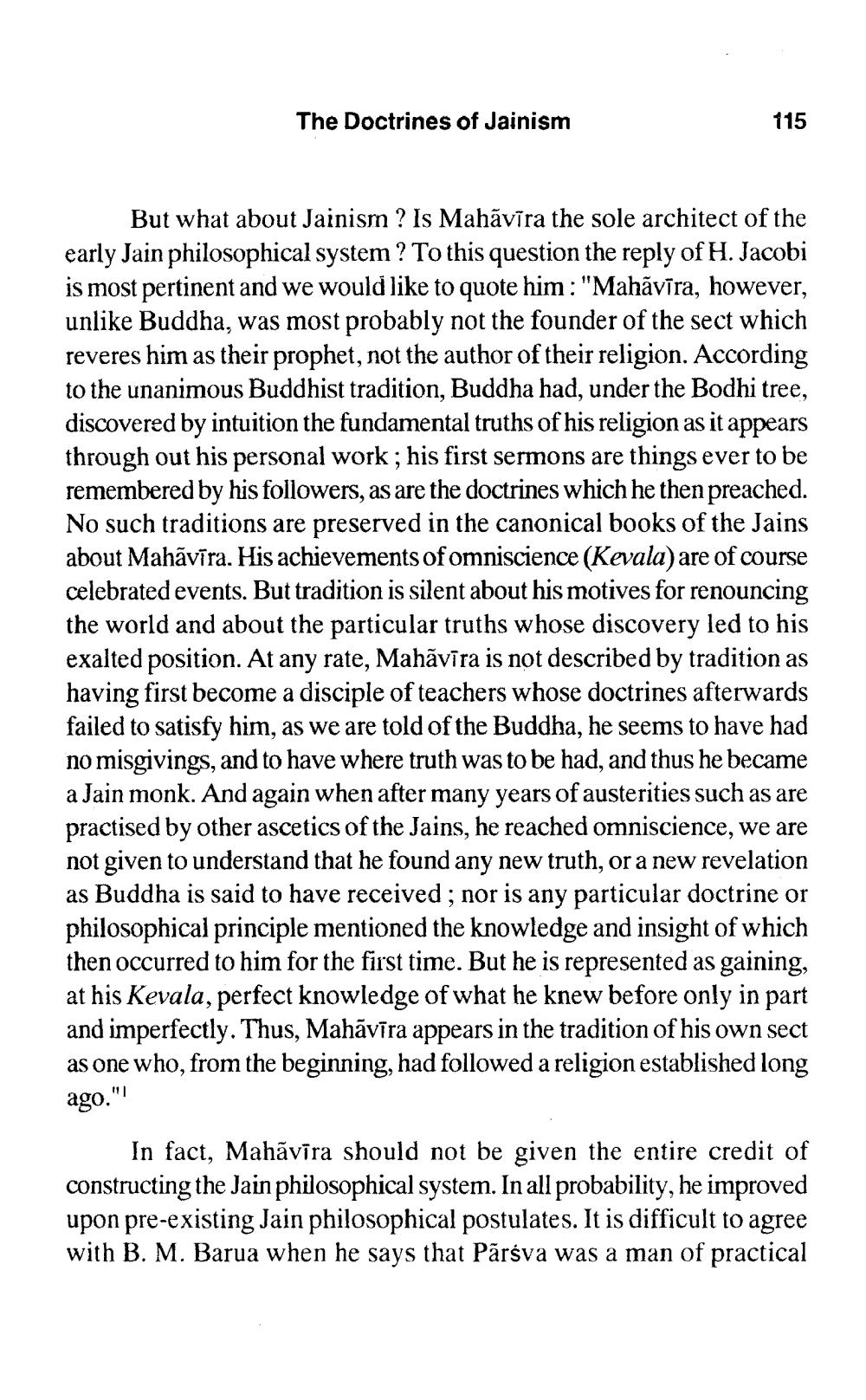________________
The Doctrines of Jainism
115
But what about Jainism ? Is Mahāvīra the sole architect of the early Jain philosophical system? To this question the reply of H. Jacobi is most pertinent and we would like to quote him : "Mahāvīra, however, unlike Buddha, was most probably not the founder of the sect which reveres him as their prophet, not the author of their religion. According to the unanimous Buddhist tradition, Buddha had, under the Bodhi tree, discovered by intuition the fundamental truths of his religion as it appears through out his personal work; his first sermons are things ever to be remembered by his followers, as are the doctrines which he then preached. No such traditions are preserved in the canonical books of the Jains about Mahāvīra. His achievements of omniscience (Kevala) are of course celebrated events. But tradition is silent about his motives for renouncing the world and about the particular truths whose discovery led to his exalted position. At any rate, Mahāvīra is not described by tradition as having first become a disciple of teachers whose doctrines afterwards failed to satisfy him, as we are told of the Buddha, he seems to have had no misgivings, and to have where truth was to be had, and thus he became a Jain monk. And again when after many years of austerities such as are practised by other ascetics of the Jains, he reached omniscience, we are not given to understand that he found any new truth, or a new revelation as Buddha is said to have received; nor is any particular doctrine or philosophical principle mentioned the knowledge and insight of which then occurred to him for the first time. But he is represented as gaining, at his Kevala, perfect knowledge of what he knew before only in part and imperfectly. Thus, Mahāvīra appears in the tradition of his own sect as one who, from the beginning, had followed a religion established long
ago."
In fact, Mahāvīra should not be given the entire credit of constructing the Jain philosophical system. In all probability, he improved upon pre-existing Jain philosophical postulates. It is difficult to agree with B. M. Barua when he says that Pārsva was a man of practical




